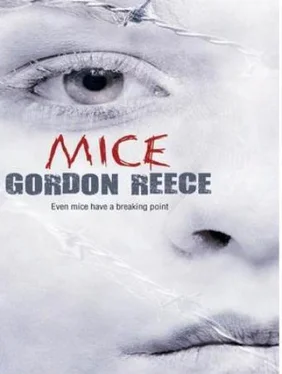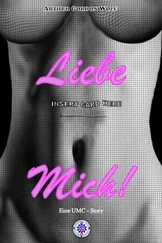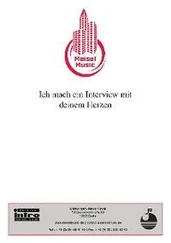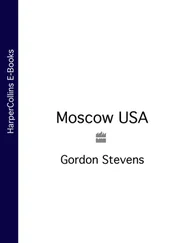Mum would always try to be encouraging, insisting that my scars were healing, and I’d try to be the same about Blakely, although there wasn’t much I could offer beyond platitudes. She couldn’t risk losing her job. She needed it. We needed it. But on the subject of Dad it was much more complicated. Not far beneath the surface of my anger towards him there was a guilty pining. Those Greek soldiers were perilously close to pouring out of the Trojan horse’s belly and hacking into the bonds that tied me and Mum together, and I could see her stiffen when I mentioned him. I was terrified of hurting her, alienating her, acutely aware that I was friendless, that I’d be lost without her.
After we’d had our tea, Mum would change out of her work suit and then we’d prepare dinner together. We both loved food and cooking, and we liked to try complex recipes from our countless cookery books. Sometimes we spent a good two hours in the kitchen chopping up vegetables on the heavy marble chopping board Mum had brought back from Italy one year, while the saucepans hissed and bubbled on the stove.
After dinner we’d sit in the lounge with the central heating turned up high, and a fire blazing in the grate if it had turned really chilly outside. Usually we read our novels (although Mum often had reading to do for work) and listened to classical music. I’d grown up listening to classical music, as it was one of Mum’s great passions — she was a competent amateur pianist — and although I’d tried to like pop music, somehow it had never really taken root. We loved Mozart and Chopin, Tchaikovsky and Brahms, but our absolute favourites were the operas of Puccini. With no neighbours for miles around, we could turn the stereo up full blast and revel in the tragic beauty of La Bohème or Madam Butterfly .
Apart from the news, we didn’t watch much TV. It seemed to consist of nothing but depressing documentaries on crack addicts in New York or Aids in Africa, cheap and badly acted soap operas, or reality TV shows that were facile beyond belief. But we did like movies, especially romantic comedies, and we always looked in the paper to see if any good ones were scheduled. Our favourites were oldies such as Y ou’ve Got Mail and Sleepless in Seattle with Tom Hanks and Meg Ryan, and Hugh Grant classics like Notting Hill and Four Weddings and a Funeral , that sort of thing. We didn’t like the modern ones — they just seemed vulgar and crudely sexual, and I felt embarrassed watching them with Mum. We both had a soft spot for George Clooney and would happily put up with all the macho posing and incomprehensible plots of the Ocean’s Eleven series just to watch him. Every now and again he’d look a certain way or say something, and remind me a little — just a little — of my dad. I never mentioned this to Mum, of course, but I often wondered if she had the same thought.
We got into the habit of having a mug of hot chocolate at around ten o’clock, and by eleven we were usually both falling asleep curled up together on the sofa.
Lying dozing there with my head resting on Mum’s shoulder, a chocolate moustache drying on my upper lip, my novel slipping to the floor from my sleepy fingers, Brahms’s violin concerto or Tchaikovsky’s sixth symphony unfolding exquisitely in the air around me, I’d luxuriate in the safe, warm atmosphere of Honeysuckle Cottage. And sometimes, as I watched the orange flames of the fire licking and crackling in the grate, I’d think about Teresa Watson and what she might be doing just then — dancing at a club, drinking lager in some crowded smoky pub, snogging her boyfriend on the back seat of his car, and I’d think: I wouldn’t change places with you, Teresa Watson, not for all the world . I know I’m a mouse and I know I’m hiding from the world here in my snug little nest behind the wainscoting, but my mouse’s life is full of all the good things there are in the world — art, music, literature. . love.
It might only be a mouse’s life but it’s a good life, it’s a rich life, it’s a wonderful life.
Spring came early that year. A mild February made way for a warm March. The cherry trees burst into frothy pink blossom, and a few days later we awoke to find the apple trees dressed in white. We made plans to bake pies when they bore fruit later in the summer, to eat with great dollops of vanilla ice-cream. As I’d promised myself, I learned the names of all the flowers in the garden, and one Sunday morning took Mum on a guided tour, introducing her by name to all its flowering inhabitants. I finished at the oval rose bed, announcing with a courtly flourish of my hand, ‘And last but not least, the hybrid perpetual, Rosa Hybrida Bifera. .’
As the days grew longer we began to spend more and more time out of doors. We now took our after-work cup of tea onto the back patio, sitting on the white plastic garden furniture Mum had picked up in town for next to nothing. At the weekends we spent hours pottering about in the garden. We mowed the lawn — which was no small task since the gardens ran to nearly three acres and we’d allowed the grass to grow longer than it ever had under the iron reign of Mr Jenkins. I went back and forth dumping bins filled with cut grass onto the sweating compost heap at the back of the garden, remembering with a smirk how Mr Jenkins had presented the slimy pile to us with all the glowing pride of a proud parent.
Mum got very excited about the vegetable patch and the idea of cooking vegetables that she’d grown in her very own garden. She wanted to grow even more vegetables than Mr Jenkins had planted, and she also wanted to grow herbs like rosemary and thyme to flavour her cooking. Since there wasn’t enough room in the existing plot, she decided to extend the vegetable patch back towards the cypress trees. So one Saturday morning, after a trip into town to buy shovels and a pitchfork, we set to work, turning over an area the size of two double beds until it was a rich brown porridge. We threw ourselves into the work with a will, glad to be doing something physical for a change, but we had no idea how exhausting we’d find it. When we woke up the next morning we could hardly move — even picking up the kettle hurt, while walking up or down the stairs was agony.
In our silly moods, we played croquet on the front lawn or stretched a net between the fruit trees and played badminton. Mum, who was tall and rather gawky, was terrible at sports, and when she missed the hoop from just a few inches away, or swiped wildly at the spiralling shuttlecock and hit nothing but air, we would both collapse, helpless with laughter.
It was so good to live in the country, and not to have any neighbours for miles around. You could talk, laugh, shout — scream even — at the top of your voice, and no one could hear you. It was such a change from the matrimonial home , where you always felt self-conscious when you went into the garden because it was overlooked on all sides, and where you had to whisper so that the neighbours — whose shapes you could see moving behind the bushes — wouldn’t hear you.
In the evenings we played duets together in the lounge, something we seemed to have got out of the habit of doing since Dad had left. We had lots of music for flute and piano and one day, idly looking through them, I’d found one called Russian Folk Songs we’d never even opened. This became our absolute favourite and we worked our way through the entire book that March. The flute parts were catchy and quite easy to play, while the piano parts were tricky and tested even Mum occasionally. They were the sorts of tune that got stuck in your head and we’d both be whistling and humming them the next day. If I made a particularly horrendous mistake, we’d both get the giggles so badly it would take us half an hour just to work our way through a few bars. I really enjoyed these duets, and I was enjoying playing the flute — which I’d given up and started again countless times — more than I ever had.
Читать дальше












